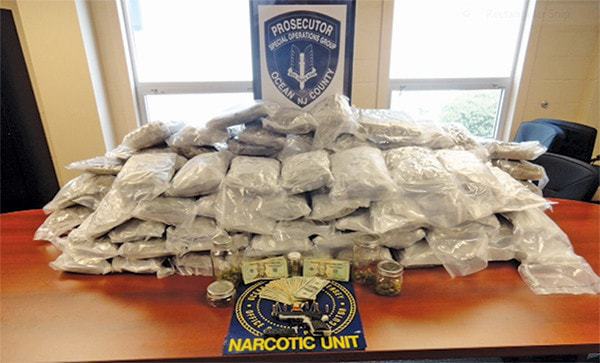
TRENTON – Municipal prosecutors may not adopt their own policies to decriminalize marijuana, New Jersey State Attorney General Gurbir S. Grewal affirmed Wednesday.
They may, however, exercise prosecutorial discretion case-by-case, as they have been able to do all along as with any criminal offense.
“A municipal prosecutor may not adopt a categorical policy or practice of refusing to seek convictions for statutory offenses related to marijuana,” Grewal said. Jersey City adopted such a policy in July, which the attorney general said is prohibited and therefore void.
Instead, “Municipal prosecutors should exercise their prosecutorial discretion in marijuana-related cases as they would in any other case—based on the particular facts and applicable law, and consistent with their ethical obligations.”
Grewal created a working group with stakeholders to study the issue, and asked municipal prosecutors to adjourn pending marijuana cases until Sept. 4. Those cases may go forward as of that date.
While the NJ Supreme Court prohibits plea bargains for some marijuana-related offenses, municipal prosecutors can still consider facts in individual cases and seek a dismissal or amendment. Prosecutors can also seek to lessen punishments or collateral consequences.
“’A municipal prosecutor should consider the impact of adverse collateral consequences of a conviction based on the specific circumstances or factors presented by the defendant or elicited by the court,’” to the extent permitted by law,” Grewal said.
“The guidance that I am issuing today confirms that municipal prosecutors can responsibly exercise discretion to deal with minor marijuana possession offenses in a progressive, equitable manner, while respecting the rule of law, including the authority of the Legislature and the Courts,” Grewal said. “Municipal prosecutors cannot decriminalize conduct that the Legislature has criminalized. They cannot adopt blanket policies of non-prosecution. But municipal prosecutors can and should strive to ensure that individual justice is done in individual cases.”
Grewal said the working group responded to his request to identify other policy changes to improve “the equal, impartial, and uniform administration of justice in our municipal courts.”
The Division of Criminal Justice will prepare recommendations for future action on several issues relating to municipal court prosecutions. Such questions include:
- Should the Code of Ethics for County Prosecutors be extended to apply to municipal prosecutors?
- Should prosecutors adopt practices and policies to address criminal justice issues raised in the recent Report of the Supreme Court Committee on Municipal Court Operations, Fines, and Fees?
- Is there an appropriate role for prosecutors to play in advising defendants of potential collateral consequences of convictions?
- Do Municipal Prosecutor Supervisors or Liaisons in County Prosecutors’ Offices require additional guidance as to their duties?
Grewal acknowledged the rumblings from Trenton that recreational marijuana may at some point be legalized, may make this guidance moot then.







